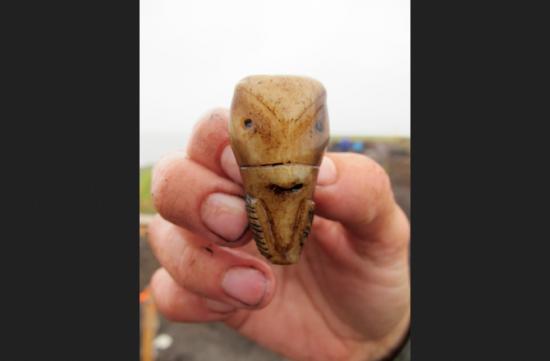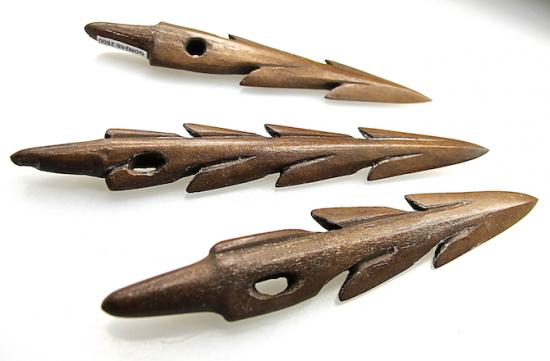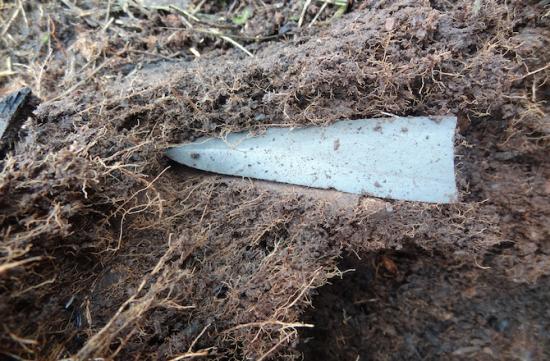PART.2

IVORY TOGGLE
Knecht said that "Yup'ik belief systems are in evidence" at the village, "such as depictions of human/animal transformations." This ivory toggle, for example, looks part-human and part-animal.
Both Inuits and Yup'iks had such beliefs and created these kinds of objects.
Joslyn Cassady of the American Indian Studies Center at UCLA wrote in the American Indian Culture and Research Journal that "Inuit myths, folklore, and material culture are filled with examples of people who turn into animals."
The line between humans and non-human animals were often blurred, given how connected the early Alaskan natives were to nature and to local wildlife.

ANTLER HARPOONS
These antler harpoon heads were used in sea mammal hunting, Pitts said. Their construction reveals just how deadly the weapons could be. The sharp tips could pierce the tough exteriors of animals such as seals, with the other sharp points ensuring the harpoons stayed fixed once inside the flesh that was covered by slippery, wet skin.

ARROW POINT
This caribou antler arrow point was found on the floor of a house, perhaps having just been used. It was slotted at the end for a slate blade. The weapon might have been used to shoot into other caribou, which could provide meat for an entire family.

SLATE END BLADE
Numerous arrows and blades have been excavated. This one might tell a particularly gory tale, as it was found in a burnt house. The skeletal remains of an adult were discovered lying in a partially dug hole near a wall. "An outstretched arm suggests that this person may have been trying to dig themselves out of the burning house," according to Knecht.

OWL FIGURINE
Like the dolls, this wooden owl figure, held by Aberdeen University archaeology student Lindsey Stirling, could have been used as a toy or ritual item. Items were usually carved out of wood, ivory or animal antlers.